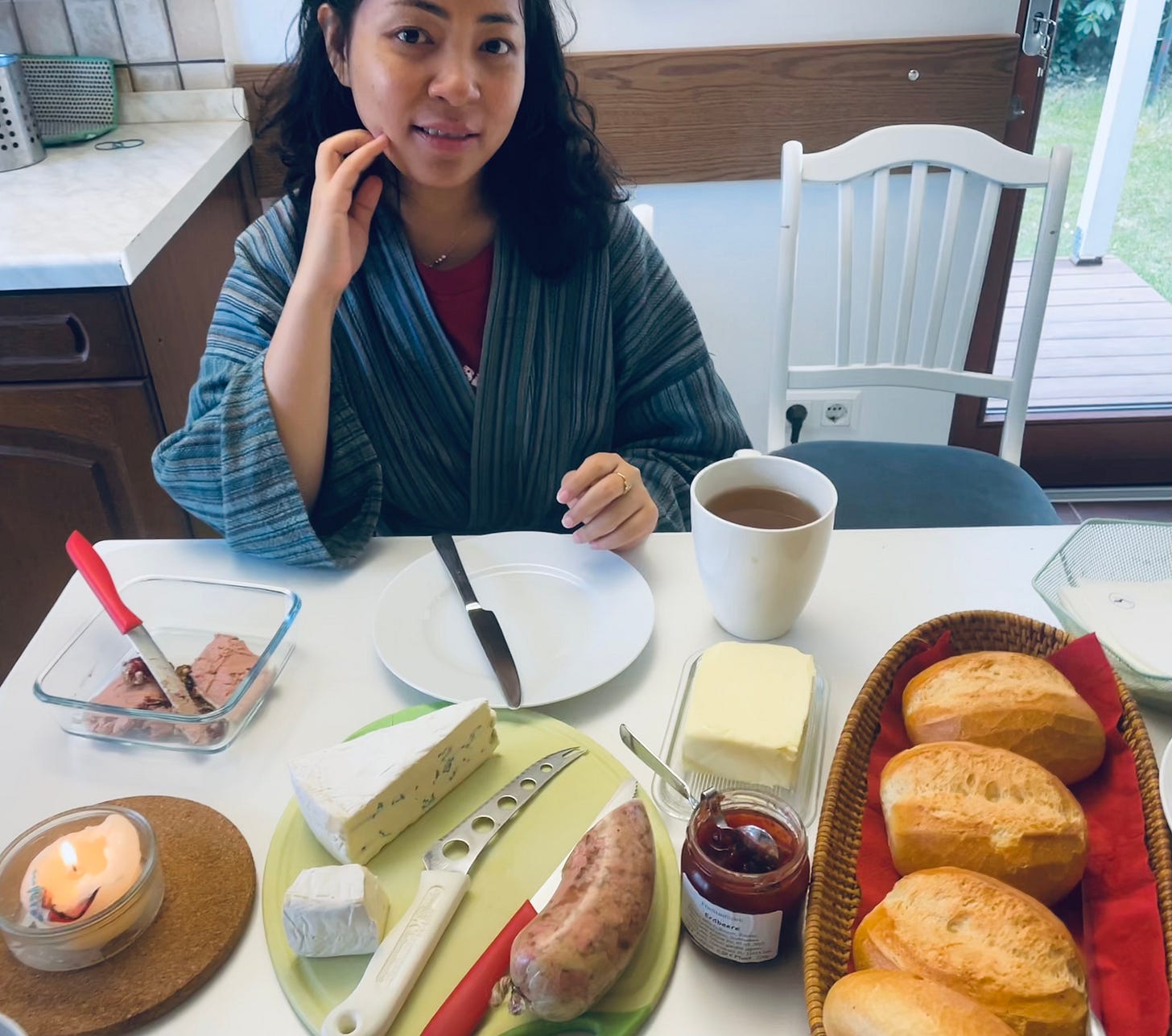Chapter 5
Rice and Bread
In my first months in Germany, I missed many things — the sound of my children’s voices, the sun on my skin, the language I could dance with. But the one thing I didn’t expect to miss so deeply was rice.
Not just rice as food — rice as comfort. As home. As rhythm.
In Myanmar, rice was always there. Morning, noon, and night. Even the smell of it cooking in the kitchen was enough to make a place feel warm. In Germany, everything smelled like bread — fresh, soft, heavy bread. It was nice… but it wasn’t mine.
I still remember the first time I went to a German supermarket. I wandered through the aisles like a lost tourist. So many kinds of bread, cheese, sausages. But where was my fermented tea leaf? Where was fish sauce? Where was the smell of fried garlic and dried shrimp?
Cooking became a language I could still speak. I had no words in German yet, but I knew how to make mohinga. I knew how to stir coconut noodles, how to boil Moringa soup, how to bring my childhood into a small, silent kitchen in Hamburg.
There were nights I cried while cooking — not out of sadness, but out of longing. I would close my eyes and imagine my children sitting beside me, licking the spoons, asking for more. Sometimes I sent them photos. “Look, Mama made your favourite.”
Sometimes I didn’t eat at all. Because eating alone — especially food that used to be shared — is its own kind of hunger.
Over time, I learned the rhythm of the German kitchen too. I learned that bread can be soft or crusty, dark or full of seeds. I learned the difference between Quark and Joghurt. I found out how to bake a cake from a box and how to buy frozen dumplings at the Asian market.
But I still cook rice.
Because rice, for me, is not just food. It’s a way of surviving. A way of staying connected to who I was, even while becoming someone new.
And now, with my children finally here, we eat together again. Sometimes it’s rice. Sometimes it’s bread. Often, it’s both. And that, somehow, feels just right
.


